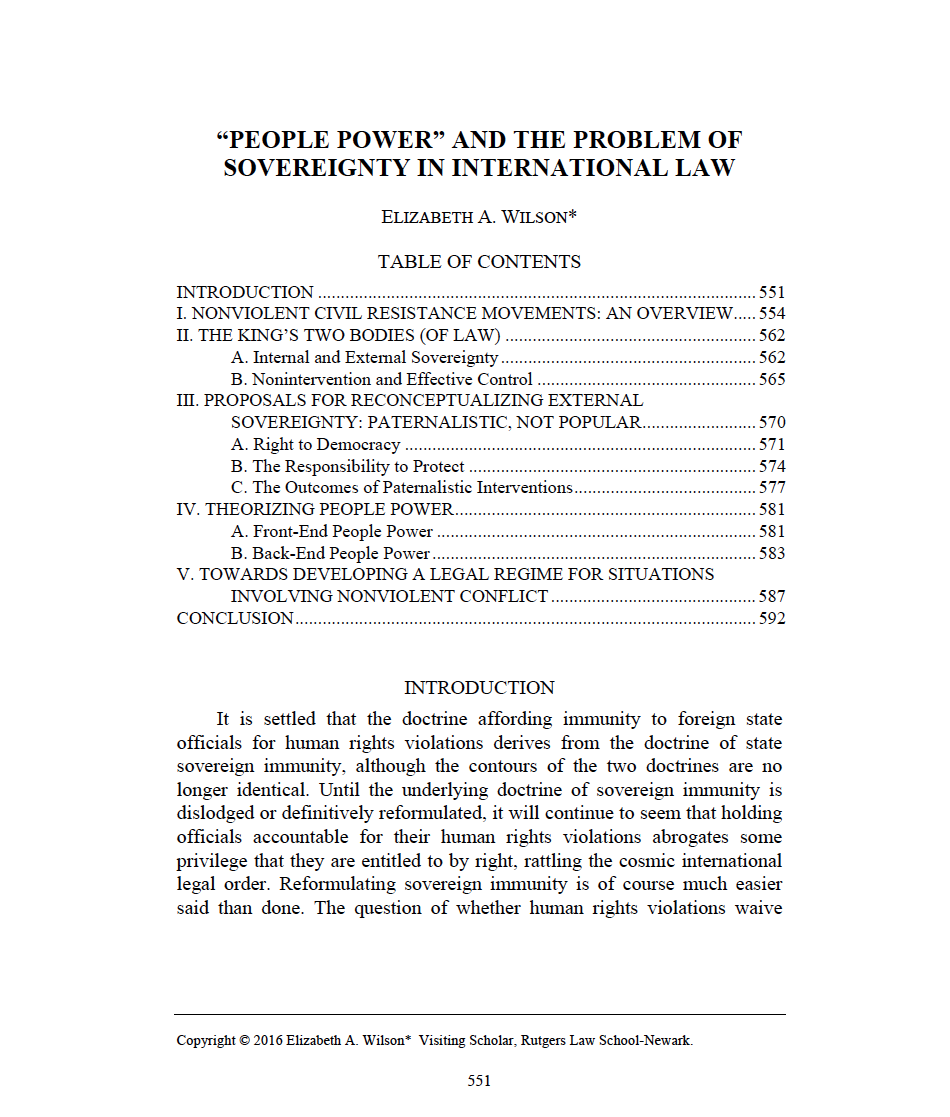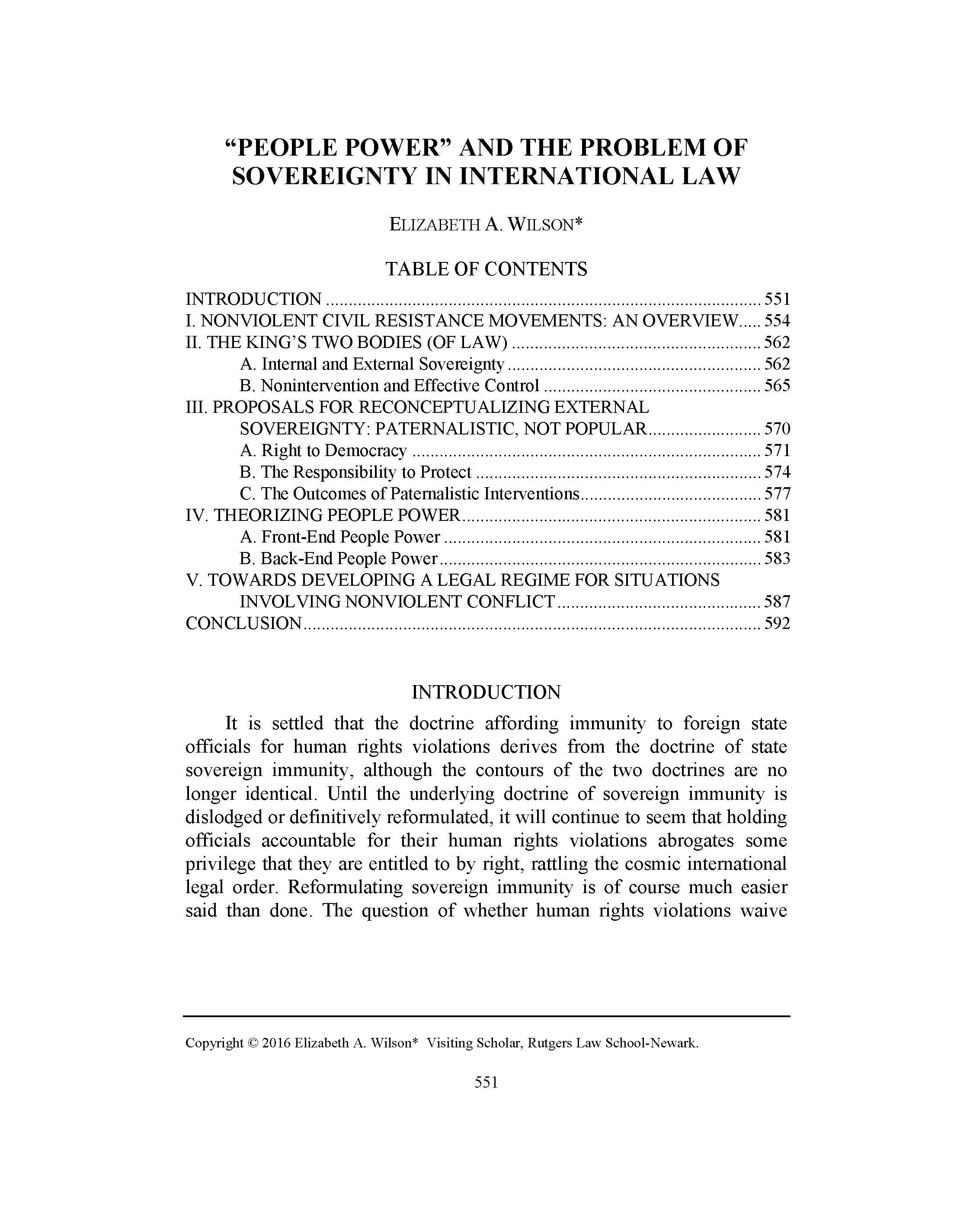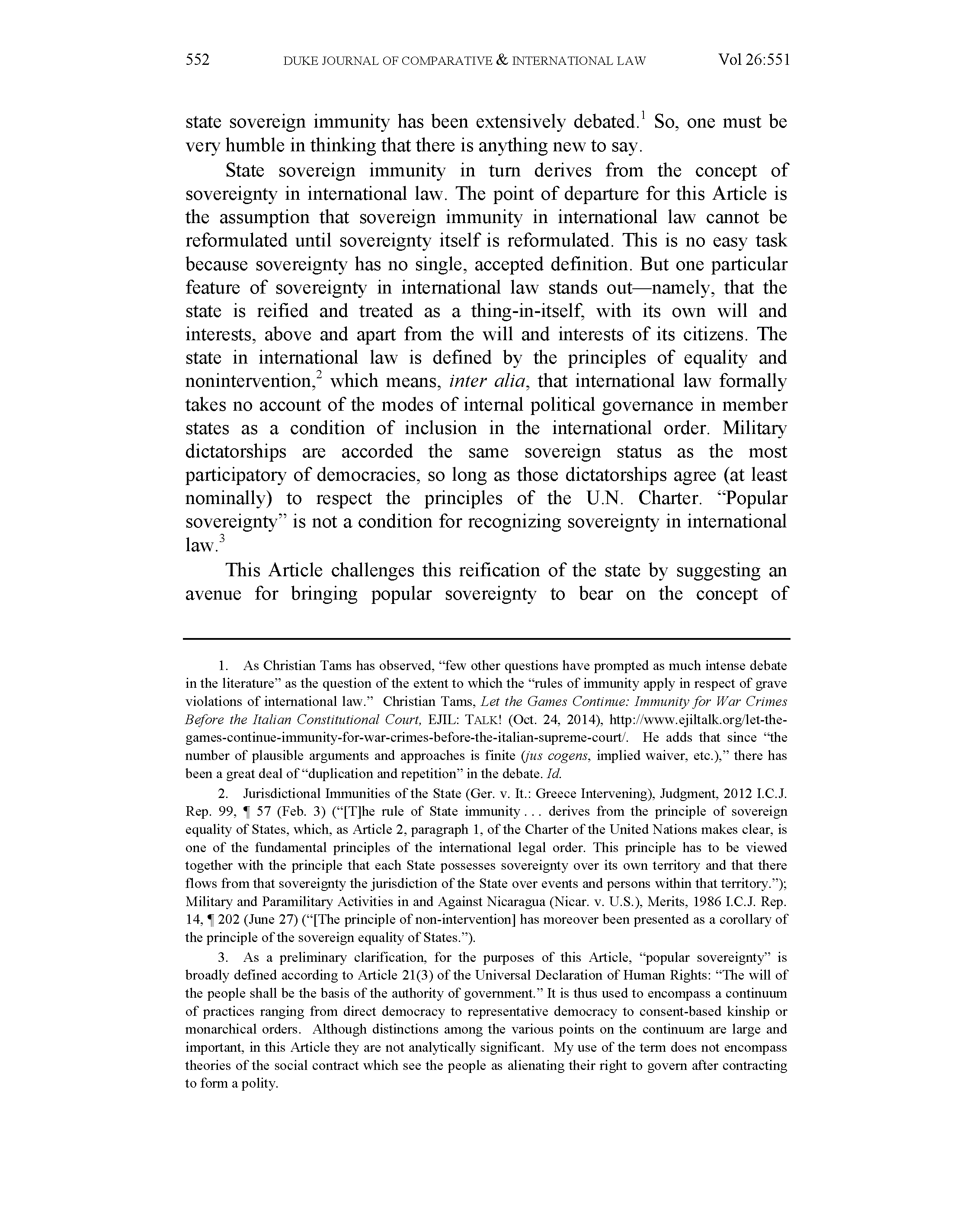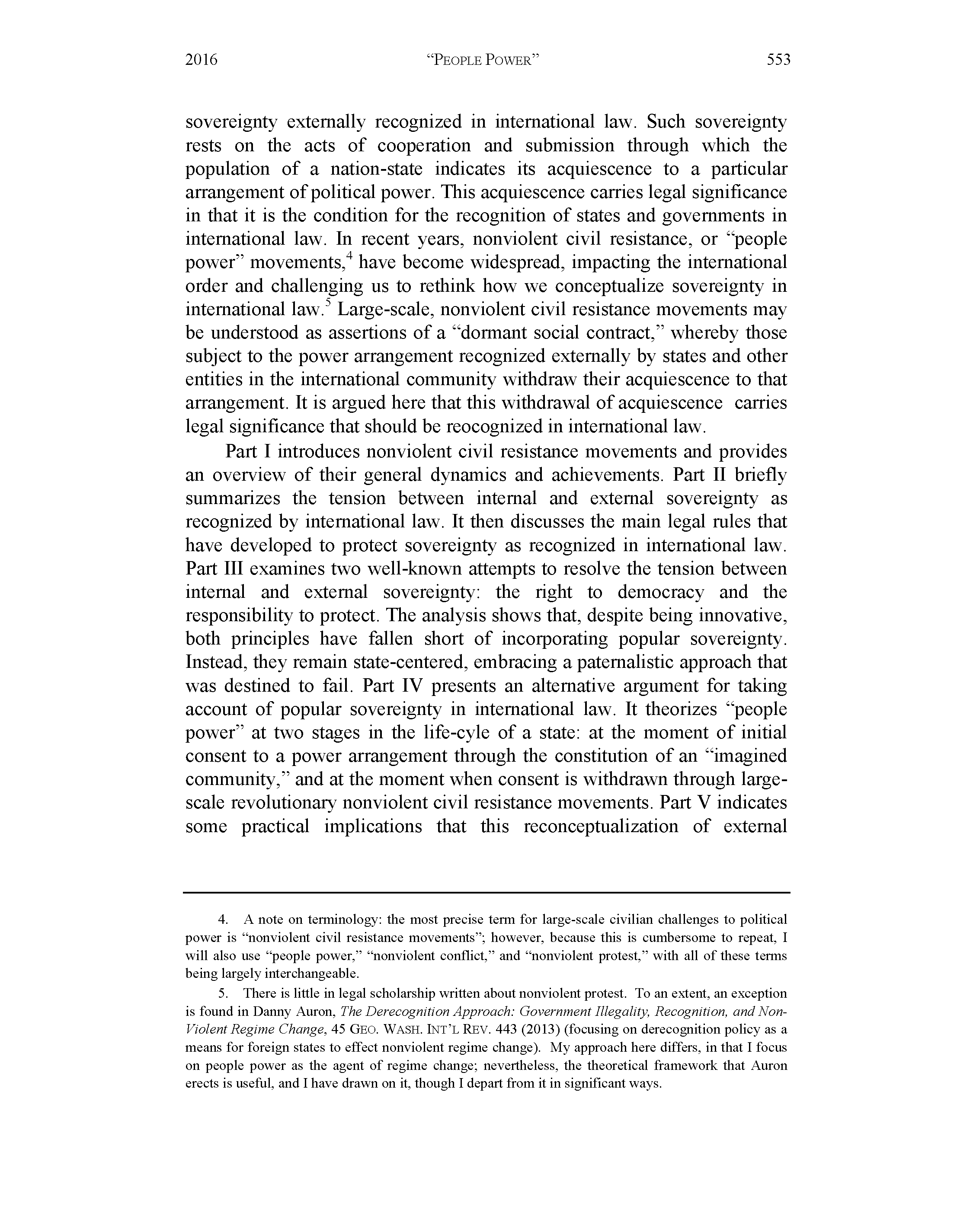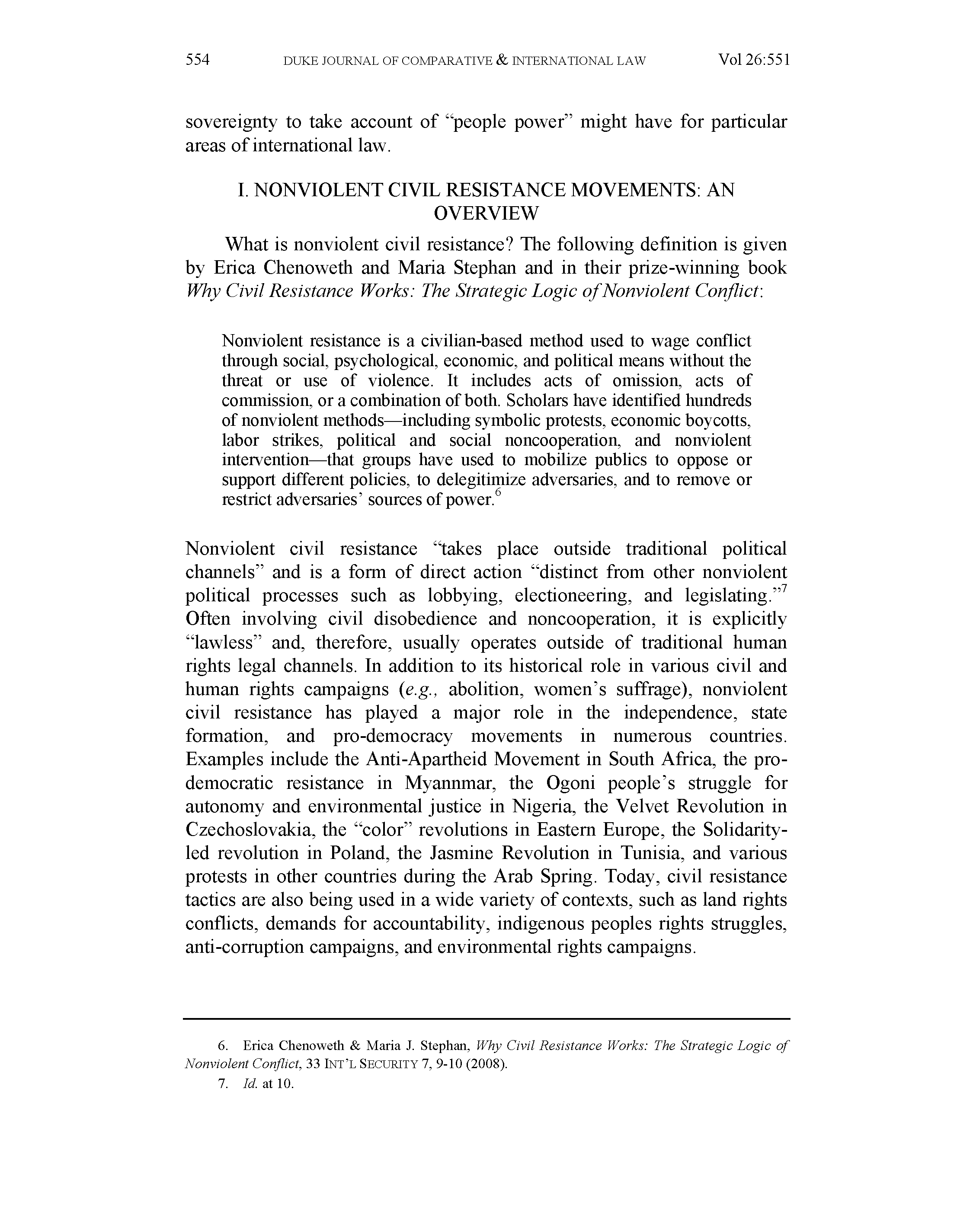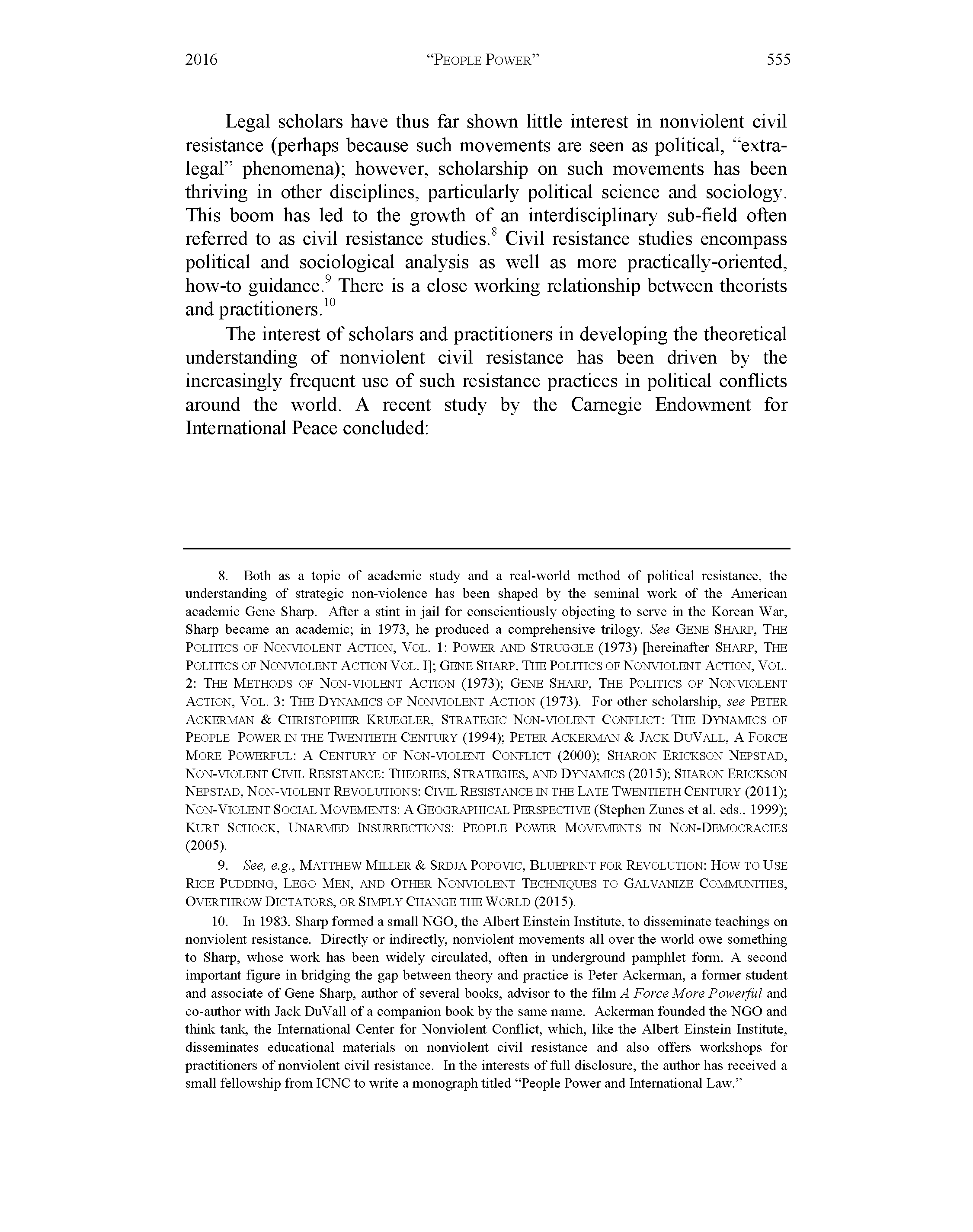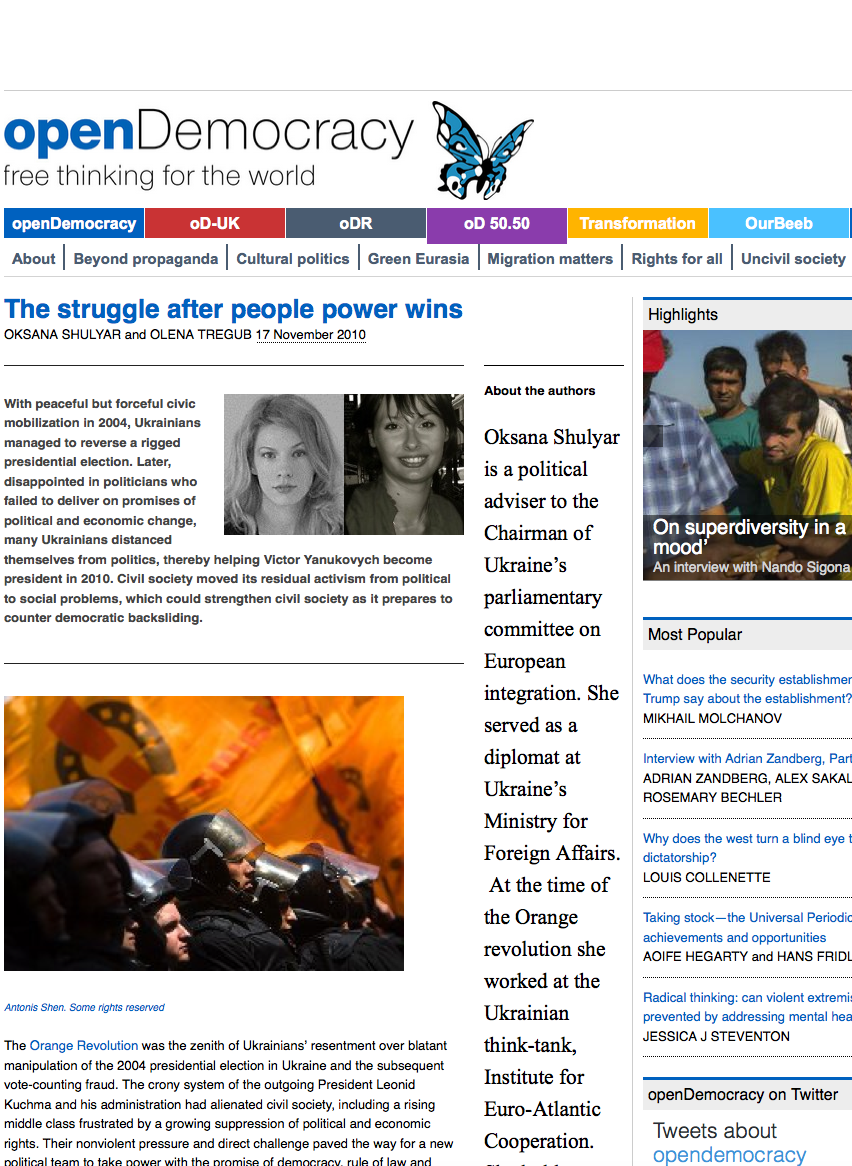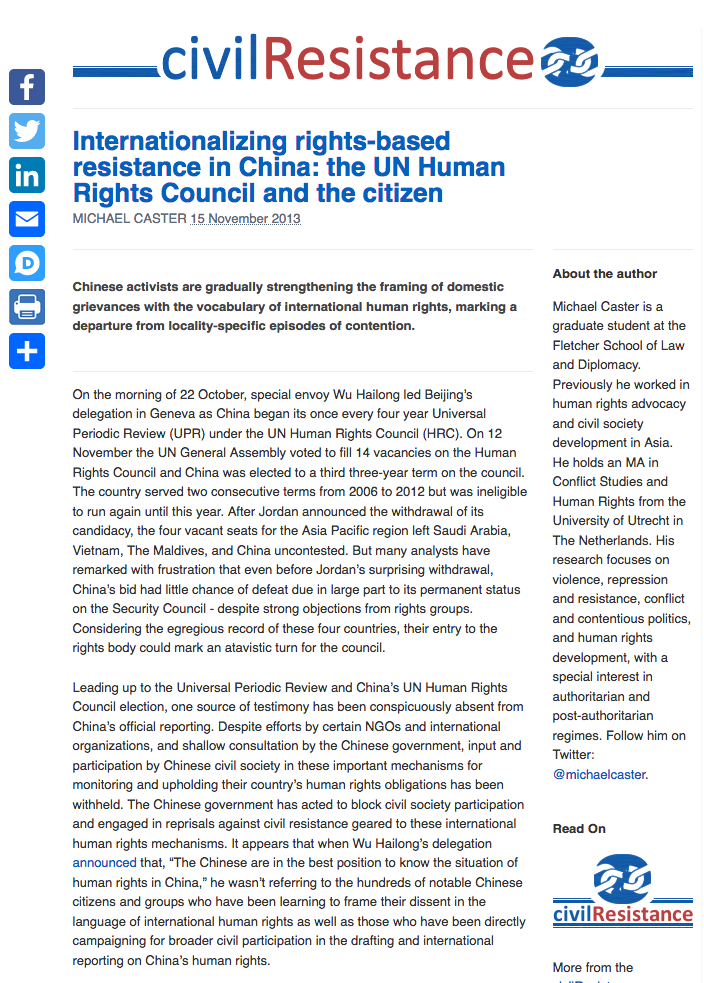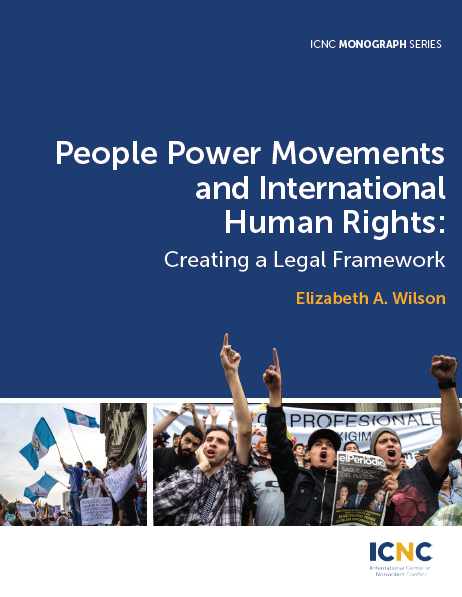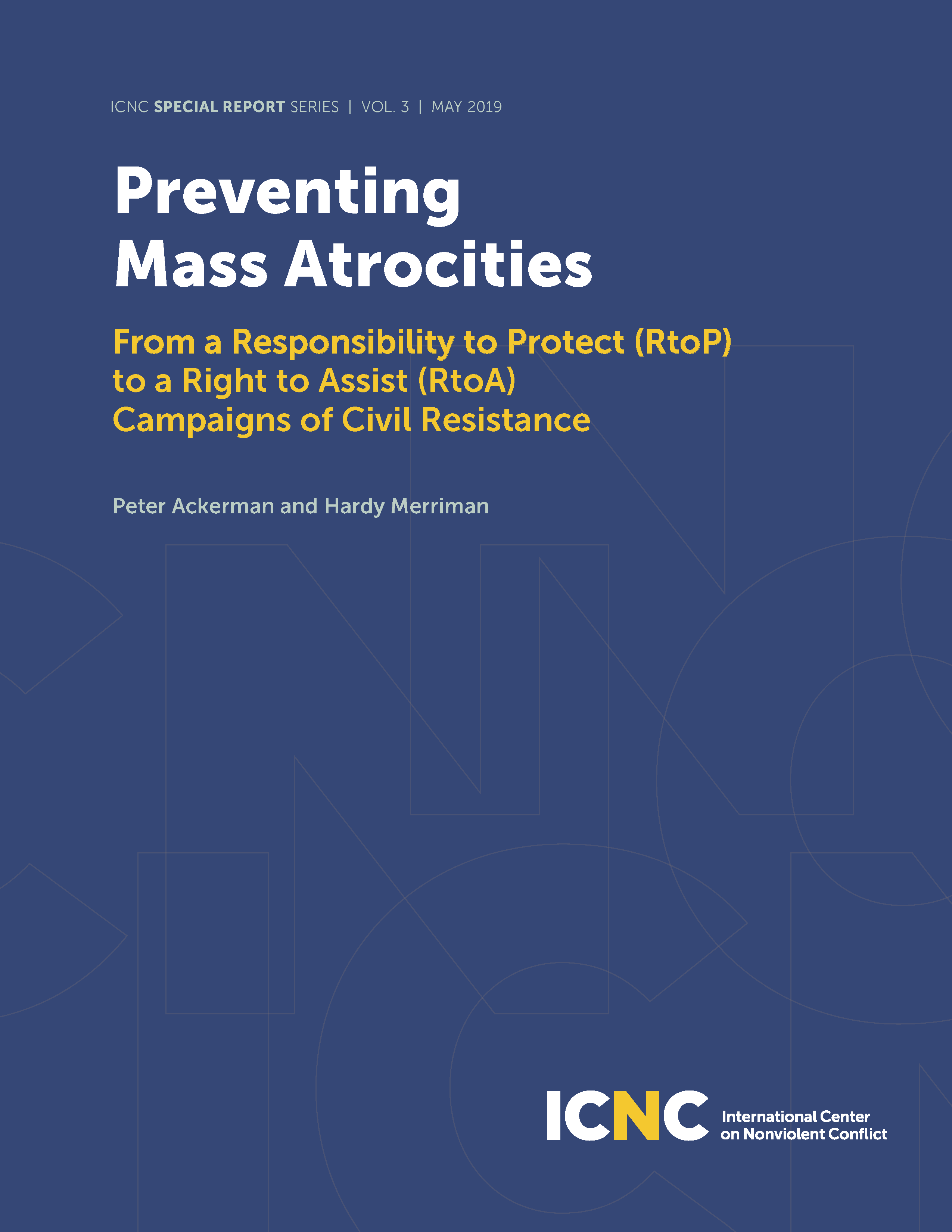“People Power” and the Problem of Sovereignty in International Law
Elizabeth Wilson’s paper summarizes the tension between internal and external sovereignty as recognized by international law, and discusses the main legal rules that have developed to protect sovereignty as recognized in international law. Part III examines two well-known attempts to resolve the tension between internal and external sovereignty: the right to democracy and the responsibility to protect. The analysis shows that, despite being innovative, both principles have fallen short of incorporating popular sovereignty. Part IV presents an alternative argument for taking account of popular sovereignty in international law. It theorizes “people power” at two stages in the life-cyle of a state: at the moment of initial consent to a power arrangement through the constitution of an “imagined community,” and at the moment when consent is withdrawn through large-scale revolutionary nonviolent civil resistance movements. Part V indicates some practical implications that this reconceptualization of external sovereignty to take account of “people power” might have for particular areas of international law.
Duke Journal of Comparative & International Law, 2015
